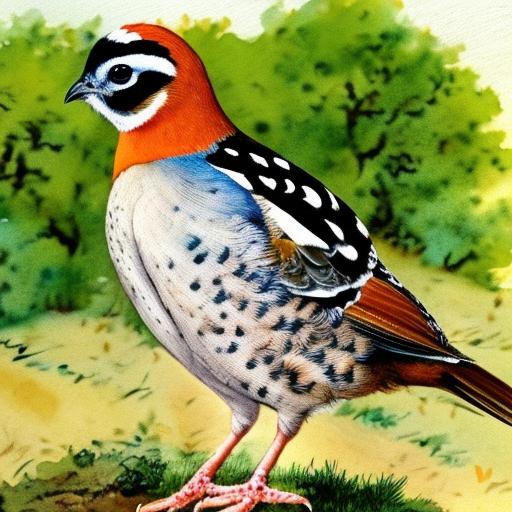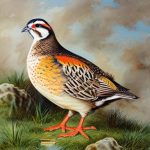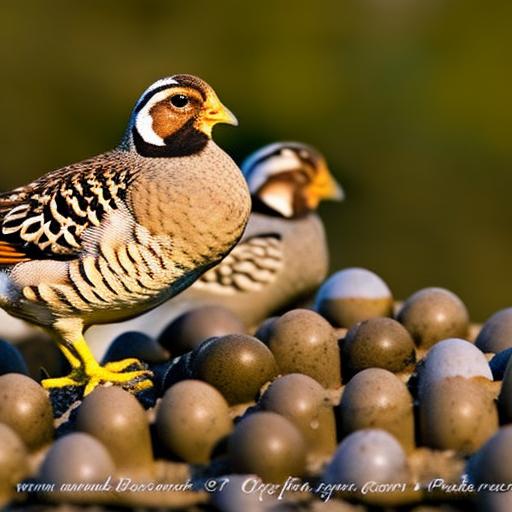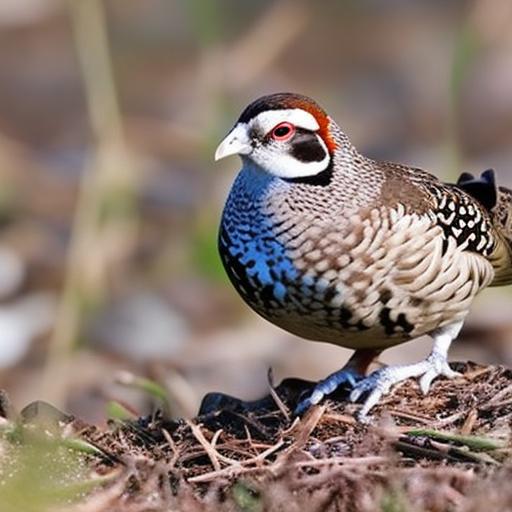Quail are small, ground-dwelling birds that belong to the pheasant family. They are known for their delicious eggs and meat, and are also popular as pets and for hunting. There are many different breeds of quail, each with its own unique characteristics and traits. These breeds vary in size, color, and egg production, making it important to choose the right breed for your specific needs. Whether you are interested in raising quail for eggs, meat, or as pets, there is a breed that is perfect for you.
Quail are relatively easy to care for and can be raised in a variety of environments, making them a popular choice for backyard farmers and homesteaders. They are also known for their ability to adapt to different climates and are often raised in both rural and urban settings. With the right knowledge and care, quail can be a valuable addition to any farm or homestead. In this article, we will explore the common breeds of quail, their characteristics, and how to select the right breed for your specific needs.
Key Takeaways
- There are several breeds of quail that are commonly raised for their eggs and meat.
- Some common breeds of quail include Coturnix, Bobwhite, and Japanese quail.
- Different quail breeds have unique characteristics such as size, color, and egg production.
- Breeding and rearing quail requires proper housing, feeding, and care to ensure healthy growth and reproduction.
- When selecting a quail breed, consider factors such as egg or meat production, temperament, and space requirements.
Common Breeds of Quail
There are several common breeds of quail that are popular among farmers and homesteaders. Some of the most popular breeds include the Coturnix quail, Bobwhite quail, California quail, and Gambel’s quail. Each of these breeds has its own unique characteristics and traits that make them suitable for different purposes.
The Coturnix quail, also known as the Japanese quail, is one of the most popular breeds for egg production. They are known for their high egg production, with some hens laying up to 300 eggs per year. Coturnix quail come in a variety of colors, including brown, white, and tuxedo, making them a visually appealing addition to any farm or homestead.
Bobwhite quail are another popular breed that is often raised for both eggs and meat. They are known for their distinctive call and are often used for hunting purposes. Bobwhite quail are native to North America and are well-suited to a variety of climates, making them a versatile choice for farmers and homesteaders.
California quail are native to the western United States and are known for their striking appearance and sociable nature. They are often raised for their meat and are also popular as pets due to their friendly demeanor.
Gambel’s quail are native to the southwestern United States and are known for their distinctive topknots and vibrant plumage. They are often raised for both eggs and meat and are well-suited to arid environments.
Characteristics of Different Quail Breeds
Each breed of quail has its own unique characteristics and traits that make it suitable for different purposes. When choosing a breed of quail, it is important to consider factors such as egg production, meat quality, temperament, and climate adaptability.
Coturnix quail are known for their high egg production, making them an excellent choice for farmers and homesteaders who are primarily interested in raising quail for eggs. They are also relatively small in size, making them easy to care for and manage.
Bobwhite quail are known for their distinctive call and are often raised for hunting purposes. They are also valued for their meat, which is considered to be of high quality. Bobwhite quail are well-suited to a variety of climates and are relatively easy to care for.
California quail are known for their striking appearance and sociable nature, making them a popular choice for farmers and homesteaders who are interested in raising quail as pets. They are also raised for their meat, which is considered to be flavorful and tender.
Gambel’s quail are well-suited to arid environments and are known for their distinctive topknots and vibrant plumage. They are often raised for both eggs and meat and are valued for their adaptability to harsh climates.
Breeding and Rearing Quail
Breeding and rearing quail can be a rewarding experience, but it requires careful planning and attention to detail. When breeding quail, it is important to select healthy breeding stock with desirable traits such as high egg production or meat quality. It is also important to provide a suitable environment for breeding, including proper nesting boxes and a balanced diet.
Quail chicks require special care during the rearing process to ensure their health and well-being. It is important to provide a warm and dry brooder environment with access to clean water and high-quality feed. Quail chicks grow quickly and will need to be moved to larger housing as they mature.
Quail can be raised in a variety of housing systems, including cages, aviaries, or free-range environments. Each system has its own advantages and disadvantages, so it is important to choose the system that best suits your specific needs and resources.
Selecting the Right Quail Breed for Your Needs
When selecting a breed of quail, it is important to consider your specific needs and goals. If you are primarily interested in raising quail for eggs, then a breed such as the Coturnix quail may be the best choice due to their high egg production. If you are interested in raising quail for meat, then a breed such as the Bobwhite quail may be more suitable due to their high-quality meat.
It is also important to consider factors such as climate adaptability, temperament, and space requirements when selecting a breed of quail. Some breeds may be better suited to certain climates or housing systems, so it is important to choose a breed that will thrive in your specific environment.
It is also important to consider your level of experience and resources when selecting a breed of quail. Some breeds may require more intensive care or management than others, so it is important to choose a breed that aligns with your abilities and resources.
Quail Breeds for Egg Production
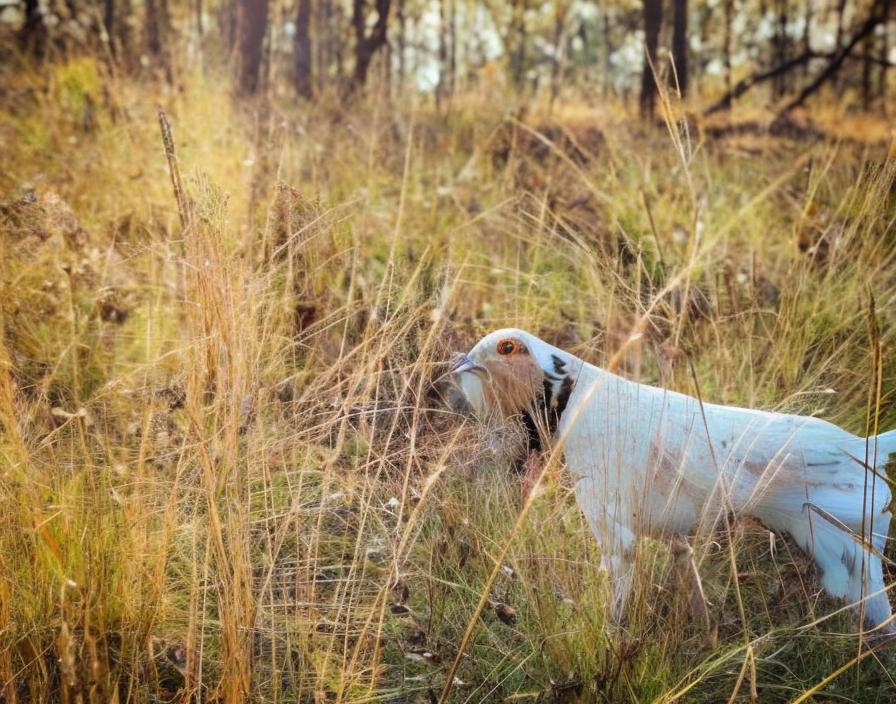
If you are primarily interested in raising quail for egg production, there are several breeds that are well-suited to this purpose. The Coturnix quail is one of the most popular breeds for egg production due to their high egg production and relatively small size. They come in a variety of colors, making them a visually appealing addition to any farm or homestead.
Another breed that is well-suited to egg production is the Bobwhite quail. While they may not lay as many eggs as Coturnix quail, they are still valued for their egg production and high-quality eggs.
It is important to provide a suitable environment for egg production, including proper nesting boxes, clean bedding, and a balanced diet. With the right care and management, quail can be a valuable source of fresh eggs for your farm or homestead.
Quail Breeds for Meat Production
If you are primarily interested in raising quail for meat production, there are several breeds that are well-suited to this purpose. The Bobwhite quail is one of the most popular breeds for meat production due to their high-quality meat and relatively large size compared to other breeds.
Gambel’s quail are also well-suited to meat production due to their adaptability to harsh climates and flavorful meat. They are often raised in arid environments where other livestock may struggle to thrive.
It is important to provide a suitable environment for meat production, including access to clean water, high-quality feed, and proper housing. With the right care and management, quail can be a valuable source of lean and flavorful meat for your farm or homestead.
In conclusion, there are many different breeds of quail that are well-suited to a variety of purposes including egg production, meat production, hunting, and pets. When selecting a breed of quail, it is important to consider factors such as egg production, meat quality, temperament, climate adaptability, and space requirements. With the right knowledge and care, quail can be a valuable addition to any farm or homestead. Whether you are interested in raising quail for eggs, meat, or as pets, there is a breed that is perfect for you.
If you’re interested in learning more about breeds of quail, you might also want to check out an informative article on PoultryWizard.com that discusses the different factors to consider when breeding quail. The article provides valuable insights into the behavior of quails and their egg-sitting habits, which can be essential for successful breeding. You can find this article at PoultryWizard.com.
FAQs
What are the different breeds of quail?
There are several different breeds of quail, including the Coturnix quail, Bobwhite quail, Gambel’s quail, California quail, and Mountain quail.
What are the characteristics of Coturnix quail?
Coturnix quail are known for their small size, fast growth, and high egg production. They come in a variety of colors, including brown, white, and speckled.
What are the characteristics of Bobwhite quail?
Bobwhite quail are native to North America and are known for their distinctive call. They are popular game birds and are often raised for hunting purposes.
What are the characteristics of Gambel’s quail?
Gambel’s quail are found in the southwestern United States and are known for their distinctive topknot of feathers. They are ground-dwelling birds and are often seen in desert habitats.
What are the characteristics of California quail?
California quail are known for their striking appearance, with a curved black plume on their head and a patterned belly. They are social birds and are often seen in groups.
What are the characteristics of Mountain quail?
Mountain quail are found in the western United States and are known for their distinctive call and shy nature. They are often found in mountainous and forested areas.
Meet Walter, the feathered-friend fanatic of Florida! Nestled in the sunshine state, Walter struts through life with his feathered companions, clucking his way to happiness. With a coop that’s fancier than a five-star hotel, he’s the Don Juan of the chicken world. When he’s not teaching his hens to do the cha-cha, you’ll find him in a heated debate with his prized rooster, Sir Clucks-a-Lot. Walter’s poultry passion is no yolk; he’s the sunny-side-up guy you never knew you needed in your flock of friends!

